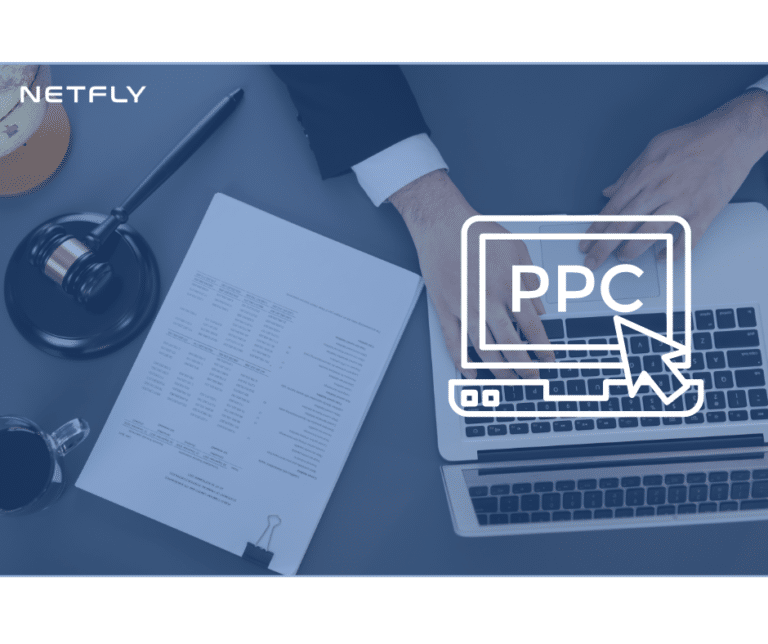If you’re a personal injury lawyer looking to elevate your online presence and attract more clients, mastering SEO is essential. From pinpointing the right keywords like ‘car accident lawyer’ to refining your local SEO tactics, there are various strategies to contemplate. But how do you guarantee your efforts translate into higher rankings and client inquiries? It’s not just about keyword stuffing—quality content, authoritative backlinks, and a seamless user experience play pivotal roles. Interested in discovering the most effective methods to boost your online visibility and client base? Let’s explore the top SEO tactics that can make a difference.
Key Takeaways
- Claim and optimize your Google My Business listing for enhanced local visibility.
- Conduct thorough keyword research to target relevant, high-converting terms.
- Regularly create and update quality content that addresses common client questions.
- Build high-quality backlinks through authoritative content and local business engagement.
- Ensure your website is mobile-friendly and optimized for speed and user experience.
Keyword Research
To start your SEO strategy, you’ll need to immerse yourself in keyword research to identify the terms potential clients are searching for. Begin by using tools like Google Keyword Planner, Ahrefs, or SEMrush. These platforms help you discover relevant keywords with strong search volumes and manageable competition. Focus on terms that directly relate to personal injury law, such as “car accident lawyer,” “slip and fall attorney,” or “workers’ compensation claim.”
It’s essential to think like your potential clients. What questions are they asking? What problems are they trying to solve? Incorporate long-tail keywords—phrases that are longer and more specific—since these often have lower competition and higher conversion rates. For instance, instead of just “personal injury lawyer,” you might target “best personal injury lawyer in [your city].”
Don’t forget to analyze the intent behind the keywords. Are users looking for information, or are they ready to hire a lawyer? Aligning your content with the searcher’s intent increases your chances of turning visitors into clients. By investing time in thorough keyword research, you lay a solid foundation for the rest of your SEO efforts.
Local SEO
When it comes to local SEO, making certain your personal injury law firm is visible to potential clients in your geographic area is essential. Start by claiming and optimizing your Google My Business (GMB) listing. Guarantee your firm’s name, address, and phone number (NAP) are consistent across all online directories. This boosts your local search ranking and helps clients find you easily.
Next, focus on local keywords. Incorporate phrases like ‘personal injury lawyer in [Your City]’ throughout your website’s content, meta tags, and headings. This helps search engines understand your location and services, making it simpler for potential clients in your area to find you.
Don’t neglect online reviews. Encourage satisfied clients to leave positive reviews on your GMB profile and other review sites. Positive reviews enhance your firm’s credibility and improve local search rankings.
Lastly, build local backlinks by engaging with local businesses, news outlets, and community organizations. Sponsor local events or write guest posts for local blogs. These backlinks signal to search engines that your firm is a reputable local business, further enhancing your local SEO efforts.
Quality Content
Creating quality content is vital for personal injury lawyers aiming to establish authority and attract potential clients. It’s not just about filling your website with words; it’s about providing valuable, relevant, and well-researched information that addresses your audience’s needs and concerns. Start by identifying common questions your clients ask and create informative blog posts, guides, or FAQs that answer these queries thoroughly.
Make your content easy to understand. Avoid legal jargon that might confuse your readers. Instead, use plain language to explain complex legal concepts. This approach not only makes your content more accessible but also builds trust with your audience.
Incorporate real-life examples and case studies to illustrate your points. Potential clients want to see your expertise in action and understand how you’ve successfully handled similar cases. This can greatly enhance your credibility.
SEO-wise, make sure your content is optimized with relevant keywords, but don’t overdo it. Natural integration of keywords will help search engines understand the topic without making your content feel artificial.
Lastly, keep your content fresh by regularly updating your blog and website. Search engines favor websites that consistently provide new, quality information. Engaging, educational content will keep readers coming back and improve your search engine rankings.
Backlink Building
Although quality content is essential, building high-quality backlinks is equally crucial for enhancing your personal injury law firm’s SEO performance. Backlinks act as votes of confidence from other websites, signaling to search engines that your content is valuable and trustworthy. When reputable sites link to your website, it can greatly boost your search engine rankings.
To start, focus on creating shareable, authoritative content that other sites will want to link to. Write in-depth guides on personal injury law topics, conduct original research, or publish client testimonials. Once you have strong content, reach out to industry-specific blogs, legal directories, and local business websites to request backlinks.
Another effective tactic is guest posting. By writing articles for reputable legal blogs or industry websites, you can include a link back to your own site. This not only earns you a valuable backlink but also exposes your firm to a wider audience.
Don’t forget about local citations. Make sure your firm is listed in local business directories and legal directories like Avvo or FindLaw. These listings often include a link to your website, adding to your backlink profile and enhancing local SEO.
Website Optimization
Optimizing your website for SEO is fundamental to guarantee your personal injury law firm ranks highly on search engine results pages. Start by making sure your site is mobile-friendly. Google prioritizes mobile-optimized websites, so your site needs to load quickly and display correctly on all devices. Use tools like Google’s Mobile-Friendly Test to check your site’s performance.
Next, focus on on-page SEO elements. This includes optimizing title tags, meta descriptions, and headers with relevant keywords. Write compelling, keyword-rich content that addresses common questions and concerns potential clients might have. Make sure your content is original and provides value.
Don’t underestimate the power of internal linking. Link your blog posts and service pages to each other to help search engines understand the structure of your site. This also keeps visitors engaged longer.
Another vital aspect is optimizing your images. Use descriptive filenames and alt text to help search engines understand what each image is about. Compress images to improve load times without sacrificing quality.
Lastly, make sure your website’s security by implementing HTTPS. Google favors secure sites, and it builds trust with your visitors. A secure site can impact your rankings positively, giving you an edge over competitors.
User Experience
Enhancing user experience on your website is just as important as optimizing it for SEO. When potential clients visit your site, they should find it easy to navigate, visually appealing, and quick to load. A well-designed website can make a significant difference in converting visitors into clients.
First, make sure your website is mobile-friendly. Many users will be accessing your site from their phones or tablets, so it’s vital that your site looks good and functions well on all devices. Mobile optimization is also a key factor in Google’s ranking algorithm.
Next, focus on site speed. Slow-loading pages can frustrate users and lead them to exit your site quickly, increasing your bounce rate. Use tools like Google PageSpeed Insights to identify areas for improvement and optimize images, leverage browser caching, and minify CSS and JavaScript files.
Content readability is another crucial aspect. Use clear headings, bullet points, and short paragraphs to make your content easy to digest. This not only helps users but also allows search engines to understand your content better.
Lastly, incorporate strong calls-to-action (CTAs). Guide users towards contacting you or scheduling a consultation, making sure these CTAs are prominent and straightforward.
Social Media Integration
Integrating social media into your SEO strategy can notably enhance your online presence and help attract more potential clients. By actively engaging on platforms like Facebook, Twitter, and LinkedIn, you can build a stronger connection with your audience while boosting your website’s visibility. Sharing relevant content, engaging in discussions, and responding to comments can demonstrate your expertise and establish trust.
Start by creating and optimizing your profiles. Make sure your business information is consistent across all platforms, and use keywords related to personal injury law in your bios. This not only helps potential clients find you but also signals to search engines that your profiles are relevant to your niche.
Regularly share valuable content like blog posts, case studies, and client testimonials. Use hashtags strategically to reach a wider audience and encourage followers to share your posts. Engaging visuals and videos can also grab attention and drive traffic to your website.
Don’t forget the power of social media for building backlinks. When industry influencers share your content, it can create valuable backlinks that improve your site’s authority. Consistent social media activity keeps your brand top-of-mind and can notably boost your SEO efforts.
Analytics and Monitoring
To guarantee your SEO strategy is effective, you need to regularly monitor and analyze your website’s performance. By keeping a close eye on your analytics, you can identify what’s working and what needs improvement. Tools like Google Analytics and SEMrush provide invaluable insights into your site’s traffic, user behavior, and conversion rates.
Start by tracking essential metrics like organic traffic, bounce rate, and average session duration. These indicators help you understand how visitors interact with your content. If you notice a high bounce rate, it might mean your site isn’t engaging enough, or your content isn’t relevant to the users’ search intent.
Keyword performance is another pivotal aspect to monitor. Tools like Google Search Console show which keywords are driving traffic to your site and where you rank for them. If certain keywords aren’t performing well, consider adjusting your content strategy.
Lastly, don’t forget about backlink analysis. High-quality backlinks are vital for improving your site’s authority. Use tools like Ahrefs to monitor your backlink profile and identify potential opportunities for new links.
Regularly analyzing these metrics will help you fine-tune your SEO strategy, ensuring you’re always moving towards better rankings and increased visibility.
Frequently Asked Questions
How Can Personal Injury Lawyers Leverage Video Marketing for Seo?
You can leverage video marketing for SEO by creating informative content that answers common client questions. Optimize video titles, descriptions, and tags with relevant keywords. Share videos across platforms to boost engagement and improve search rankings.
What Role Does Voice Search Play in SEO for Legal Websites?
Voice search is essential for SEO on legal websites. You’ve got to optimize for natural language queries and long-tail keywords since people speak differently than they type. Make sure your content is conversational and answers specific questions.
How Can Client Testimonials Improve SEO for Personal Injury Lawyers?
Client testimonials can boost your SEO by increasing user engagement and time spent on your site. They provide fresh, relevant content and improve your site’s credibility, which search engines love. Don’t underestimate their power!
Are There Specific SEO Strategies for Mobile Users in the Legal Niche?
Absolutely, you’ll want to optimize for mobile with responsive design, fast load times, and easy navigation. Make sure your content is concise and accessible, and leverage local SEO to attract nearby clients searching on their phones.
How Does Schema Markup Benefit Personal Injury Law Websites?
Schema markup helps your website stand out in search results by providing search engines with specific information about your services. It increases click-through rates and improves your site’s visibility, making it easier for potential clients to find you.
Conclusion
Incorporating these top SEO tactics will greatly boost your online presence and attract more personal injury clients. Imagine a firm that previously struggled to get leads but, after optimizing for ‘car accident lawyer’ and ‘workers’ compensation claim,’ saw a 50% increase in inquiries within three months. By focusing on keyword research, local SEO, quality content, backlink building, website optimization, user experience, and social media integration, you can achieve similar success. Start today and watch your practice grow!










